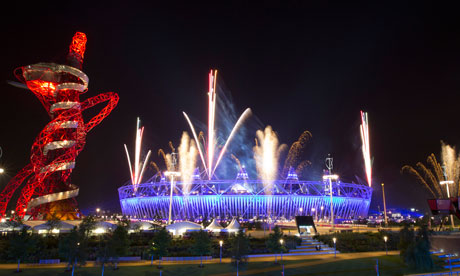
Tonight's Olympics opening ceremony, set to be "surreal and eccentric", according to Radio 4, has literature at its heart, with Shakespeare to provide the theme of Danny Boyle's patriotic pageant, Isles of Wonder. Co-opting the Bard is possibly its most surreal and eccentric aspect, however, as the plays and poems suggest he couldn't stand sport.
Death always seems to hover whenever it appears, whether killing is the object of the exercise (as in hunting and falconry) or the result of things going horribly wrong; Hamlet and Adonis in Venus and Adonis both die when engaged in sport, the latter less than heroically killed by a boar. In As You Like It's second scene – which repeats the word "sport" several times to ensure we get the point – a jolly day's wrestling leaves three men dead and one apparently a vegetable.
In this play and Hamlet, Shakespeare introduces characters who may be English literature's first pro sportsman and first sporting expert and referee – and both are humiliated. In the comedy's strangely dark opening, Charles the wrestler loses to the aristocratic amateur Orlando, and goes within moments from being an articulate figure with ethical scruples to a mute slab of meat ("Le Beau: 'He cannot speak, my lord'. Duke F: 'Bear him away'").
In Hamlet, Osric, the incongruously effete referee of the fencing match in which the prince dies, is a target for ridicule, his showing-off of his familiarity with the discipline's technicalities reflecting a foppish obsession with esoteric trivia. To the perennial question of why a comical courtier has so pivotal a role in the tragedy's climax should be added another: what's a parody sports buff doing there?
Two further Olympic sports appear in Julius Caesar, and in each case Shakespeare shows them as laden with dark omens or symbolism when not directly deadly. Cassius recalls a swimming race in which he saved Caesar from drowning, foreshadowing his later grasping of the dictator to murder him; and it's while on his way to watching Mark Antony run in a "course" (race) that Caesar is told to beware the Ides of March.
In the light of the above, it's tempting to discern an autobiographical ring in the following lines. Urged by Cassius to watch the race with him, Brutus perhaps serves as a mouthpiece for the author – and suggests what a time-travelling Shakespeare would say, if a friend asked if he was buying London 2012 tickets – when he excuses himself on the grounds that he's a non-sporty, non-competitive geek: "'I am not gamesome. I do lack some part of that quick spirit that is in Antony. Let me not hinder, Cassius, your desires. I'll leave you.'"

